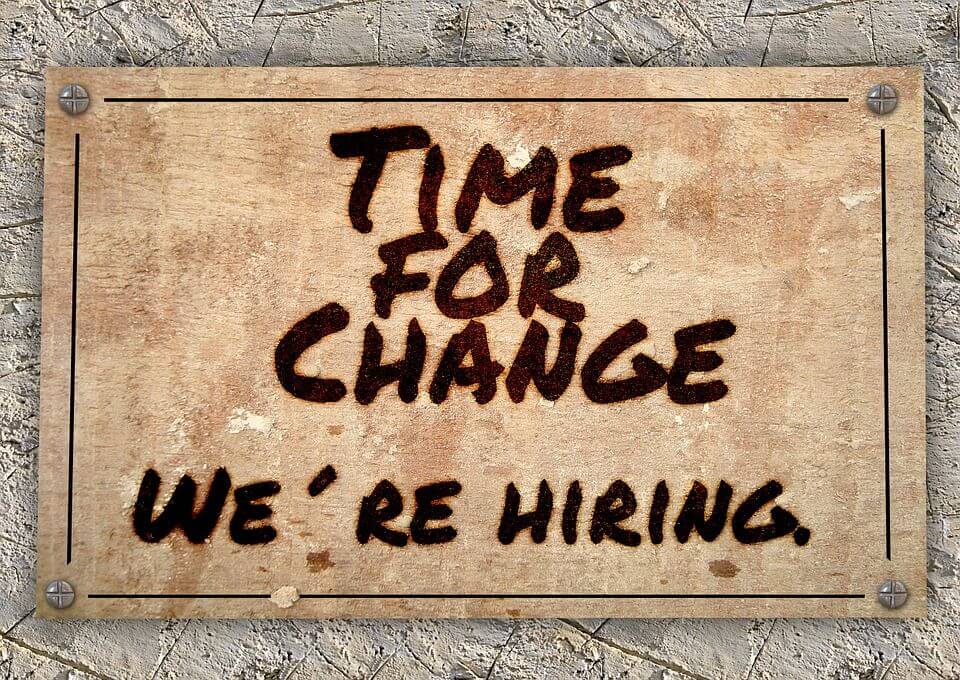Advice for Career Changers: 8 Resume Tips to Advance Your Career

Switching careers is both exciting and overwhelming at the same time. You may be more than ready to move on from the industry you’ve worked in for the past few years, but it’s still a scary and unfamiliar path ahead of you. Knowing how to present your resume in the best light possible is a big part of landing your dream job when making a career change. Read these tips about writing a resume for a career change to help you on your way.
1. Give it an Overall Revision
When you’re changing careers, you need to do more to your website than simply update it with your latest job information. You’ll want to go through every aspect of your resume and make sure that it in some way relates to the career you’re looking for, not necessarily the one you had. Think of the aspects of your former or current career that match those of your new career and highlight those points. If necessary, work with a professional resume writing service that will help you revise your resume.
2. Highlight Your Transferable Skills
Even if you don’t realise it, your background and work experience does include some transferable skills for career changers. Even if you’re moving from one industry to a completely different one, you’re bound to have learned something you can take with you, whether that’s customer service, sales, marketing, etc. If you can’t figure out which skills you need to mention, make exhaustive lists of the skills you’ve learned and the skills you need, then compare the two to find crossover skills.
3. Craft a Relevant Opening Summary
Think about the job description for the job you hope to attain. Use that to guide the summary paragraph, which some people use in place of a “Career Objective.” This is where you can write, in paragraph form, about your strongest skills and most relevant background experience as it relates to your future career. Consider working with a resume writer for help writing the summary or to find out what to write in career objective.
4. Keep it Concise
Even if you have a ton of experience that you want to mention, you should never let your resume go beyond two pages; one page is still best, even if it that means it can’t be exhaustive. Your interview is the time to go into more detail about your job. The resume is simply the tool to get you that interview, so it should include succinct, easy-to-skim information.
5. Don’t Pad the Resume
There’s nothing wrong with having gaps in knowledge or experience, particularly when you’re trying to break into an unfamiliar industry. The worst thing you can do on your resume is pretend to have experience or skills that you don’t truly have. It’s more important to show your flexibility and ability to learn your new role than to already know the ins and outs of your future job.
6. Trim the Fat
Knowing what to leave out of your resume is just as important as knowing what to include. You don’t need your resume to be a laundry list of each and every job you’ve ever had. It also doesn’t need to mention any and every skill you’ve attained over the years. Your resume should only include the information that’s most relevant to your current goal. Do a final once-over to get rid of any unnecessary information.
7. Don’t Be Afraid to Include Personal Information
So long as your personal life relates to your career or the skills you’ll need, it’s fine to include it. Employers like to see that their employees are involved in pursuits outside of work. If your extracurricular activities include consulting, volunteering or belonging to an association, and if those things relate in some way to the job, then they should be included.
8. Connect with Someone You Know
If you happen to have an “in” at the company you’re applying for, take advantage of it. Put your resume in your contact’s hands in the hopes it’ll make its way to the head of the hiring board. Make sure to mention your contact’s name during your interview, too. Showing that you have some sort of personal connection to a company can give you a leg up.
When changing careers, expect to go through evolutions. Your goals may change again and again before you land in a career that you truly love. Make sure to always update your resume to be in-line with your current goals so that you’ll appeal to the exact type of career you truly want. If you have a few different paths you might take, keep different versions of your resume.

